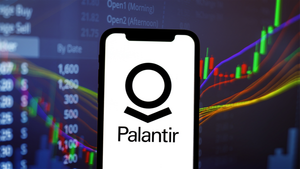
Accra, Ghana & Johannesburg, South Africa – November 1, 2025 – As the global discourse on Artificial Intelligence continues to intensify, a new wave of thought leadership from Africa is emerging, championing the continent's pivotal role in the Fourth and Fifth Industrial Revolutions. At the forefront of this movement is the recently launched book, Decade of Kingdom African Intelligence 25 High Career in STEM AI ABM, co-authored by H.E. Rev. Dr. Asie Kabuki Ocansey and Professor Mohammed Samarah. Unveiled at the International Conference on Innovation, Scientific Research, and Emerging Technologies (ICISET) in Ghana, this seminal work serves as an urgent call to action for African leaders to proactively harness AI for continental development and address its unique challenges. Concurrently, Dr. Mark Nasila's impactful African Artificial Intelligence: Discovering Africa's AI Identity, published earlier this year, further solidifies the narrative of an Africa poised to define its own AI future. Together, these publications signal a critical juncture, advocating for homegrown innovation, strategic leadership, and ethical deployment of AI to unlock unprecedented growth and autonomy across the continent.
These books arrive at a crucial moment, challenging the traditional paradigm where Africa is often viewed as a consumer rather than a creator of technology. Their immediate significance lies in reframing the narrative, urging a shift towards self-sufficiency, talent development, and the integration of AI solutions tailored to the continent's specific needs and socio-cultural contexts. The emphasis is not merely on adopting AI, but on adapting it, ensuring that the technology serves as a powerful catalyst for equitable development and economic empowerment.
Forging Africa's AI Identity: A Deep Dive into Strategic Imperatives
Decade of Kingdom African Intelligence 25 High Career in STEM AI ABM lays down three foundational principles for Africa's technological ascent: immediate action to transform the continent's future, the recognition of technology and AI as fundamental human rights for all Africans, and the indispensable need for collaboration and cooperation to accelerate continental progress. Dr. Ocansey and Professor Samarah's work specifically advocates for empowering Africans to transition from being passive consumers to active co-designers and creators of technology. This involves a strategic focus on training individuals to become employers, fostering a robust entrepreneurial ecosystem where "entrepreneurship leads enterprise," and cultivating homegrown expertise to support ambitious infrastructure projects like smart cities, thereby reducing reliance on external talent. A pilot program, mentioned in conjunction with the book's launch, has already facilitated advanced technology studies for numerous African students at the University of Maryland, Baltimore County (UMBC), demonstrating a practical commitment to capacity building.
Complementing this vision, Dr. Mark Nasila's African Artificial Intelligence: Discovering Africa's AI Identity provides a vital blueprint, arguing that AI is as transformative as historical innovations like fire or the wheel. Nasila's central thesis is the imperative for Africa to develop its own distinct AI solutions, leveraging data as a crucial African resource. His book delves into foundational AI insights and offers practical implementation strategies across diverse sectors, from agriculture and healthcare to finance and education, drawing heavily on his expertise in transforming financial systems. This approach starkly differs from previous models where African nations often adopted technologies developed elsewhere without sufficient customization or local ownership, leading to solutions that sometimes failed to address unique continental challenges effectively. The initial reactions to both books highlight their reception as inspiring and urgent appeals for proactive, context-aware AI leadership, with Nasila's book, in particular, being lauded as a "blueprint for Africa's technological future."
Competitive Implications and Market Dynamics in a Self-Sufficient Africa
The vision articulated in these books carries profound implications for AI companies, tech giants, and burgeoning startups. African tech companies and local startups stand to be the primary beneficiaries of this renewed emphasis on homegrown talent and tailored AI solutions. The call to empower Africans as co-designers and entrepreneurs directly fuels the growth of local innovation hubs and incubators, creating a fertile ground for startups to develop AI applications specifically designed for African markets. This strategic shift could lead to a significant increase in venture capital flowing into African tech, as investors seek to back solutions that resonate deeply with local needs and cultural nuances.
For major global AI labs and tech companies (e.g., Alphabet (NASDAQ: GOOGL), Microsoft (NASDAQ: MSFT)), the competitive landscape in Africa may evolve. While opportunities for partnership and collaboration with local entities will likely increase, a more self-sufficient Africa, developing its own AI identity, could reduce the continent's reliance on entirely imported solutions. This might necessitate a re-evaluation of market entry strategies, favoring deeper localization, technology transfer, and co-development models over simple product deployment. Potential disruption to existing products or services could arise if locally developed, contextually relevant AI solutions outperform generic global offerings in specific African markets. The emphasis on data as an African resource, as highlighted by Dr. Nasila, also suggests that control over and utilization of local data will become a critical strategic advantage for companies operating within the continent, potentially favoring those with strong local presence and data governance frameworks.
Reshaping the Global AI Narrative: Africa's Unique Contribution
These literary contributions fit squarely into the broader global AI landscape by injecting a much-needed African perspective into the discourse. Historically, much of AI development and ethical frameworks have been shaped by Western and East Asian contexts. These books, particularly Responsible AI in Africa: Challenges and Opportunities (edited by Damian O. Eke), advocate for African values, interests, and principles to be at the core of AI's design and deployment on the continent. This includes integrating African philosophies such as Ubuntu into AI applications, fostering a more inclusive and human-centric approach to technology. The impacts are far-reaching: from enhancing digital literacy and building robust data infrastructure to developing contextually appropriate AI policies and securing adequate funding, Africa is poised to address its unique development challenges through AI.
The potential concerns, as critically addressed by Dr. Nasila and contributors to Responsible AI in Africa, include ethical considerations, the risk of job displacement, and exacerbating inequality if AI is not implemented thoughtfully. However, by proactively shaping its AI identity, Africa can mitigate these risks, learning from the pitfalls observed in more developed AI ecosystems. This proactive stance marks a significant shift from previous AI milestones, where African nations were often recipients of technology rather than active participants in its conceptualization and ethical framing. This movement is not just about technological advancement; it's about technological sovereignty and ensuring that AI serves as a tool for empowerment, not exploitation.
The Horizon: Anticipating AI's Transformative Power in Africa
Looking ahead, the insights from these books suggest a vibrant future for AI in Africa. Expected near-term developments include a surge in AI applications tailored for critical sectors such as agriculture, where AI can optimize crop yields and manage water resources; healthcare, with AI-powered diagnostics and telemedicine expanding access to care; finance, through AI-driven financial inclusion and fraud detection; and education, via personalized learning platforms. The pilot program for advanced technology studies at UMBC, linked to Dr. Ocansey's work, exemplifies the kind of capacity building that will fuel these applications.
However, significant challenges remain. Insufficient digital literacy, a lack of robust data infrastructure, inadequate policy frameworks, and consistent funding are hurdles that need to be addressed systematically. Experts predict a continued focus on developing ethical AI guidelines that resonate with African values, emphasizing fairness, transparency, and accountability. The call for Africa to "shape its own AI identity" means that future developments will likely prioritize solutions that are sustainable, inclusive, and directly contribute to the United Nations' Sustainable Development Goals. What experts predict next is a deeper integration of AI into national development strategies, fostering regional collaborations, and a growing number of African-led AI innovations gaining global recognition.
A New Chapter in AI History: Africa's Definitive Voice
The emergence of books like Decade of Kingdom African Intelligence 25 High Career in STEM AI ABM and African Artificial Intelligence: Discovering Africa's AI Identity marks a pivotal moment in AI history, not just for Africa, but for the global AI community. They collectively deliver a powerful message: Africa is not merely catching up; it is actively defining its own technological future. Key takeaways include the urgent need for proactive leadership, the recognition of technology as a human right, the imperative of homegrown innovation, and the strategic leveraging of data and talent to address unique continental challenges.
These developments signify a profound shift in the AI landscape, moving towards a more diverse and inclusive global conversation. The emphasis on context-aware, ethically grounded AI solutions, deeply rooted in African values, offers a compelling model for responsible technological advancement worldwide. In the coming weeks and months, the world should watch for increased investment in African AI startups, the establishment of more regional AI research centers, and the continued development of policy frameworks that support ethical and equitable AI deployment across the continent. Africa's tech revolution, guided by its own visionaries, is not just a dream—it's an unfolding reality that promises to reshape the future of AI.
This content is intended for informational purposes only and represents analysis of current AI developments.
TokenRing AI delivers enterprise-grade solutions for multi-agent AI workflow orchestration, AI-powered development tools, and seamless remote collaboration platforms.
For more information, visit https://www.tokenring.ai/.




